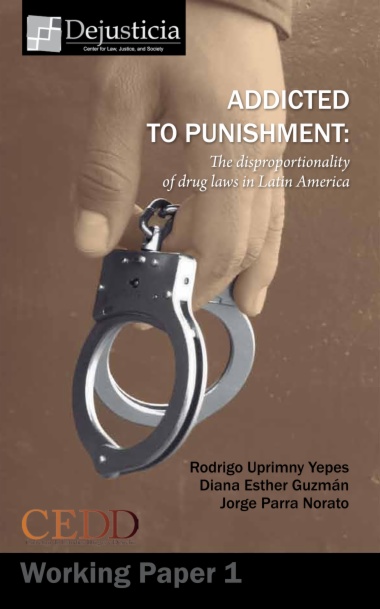

In Latin America, trafficking cocaine so it can be sold to someone who wants to use it is more serious than raping a woman or deliberately killing your neighbor. While it may seem incredible, that is the conclusion of a rigorous study of the evolution of criminal legislation in the region, which shows that countries’ judicial systems mete out harsher penalties for trafficking even modest amounts of drugs than for acts as heinous as sexual assault or murder. How have we reached such an unjust and irrational point? In recent decades, especially the 1980s, Latin American countries, influenced by an international prohibitionist model, fell – ironically – into what we might metaphorically call an addiction to punishment. Addiction creates the need to consume more and more drugs, which have less and less effect; ultimately, the problematic user simply consumes drugs to avoid withdrawal. Drug legislation in Latin America seems to have followed a similar path. Countries have an ever-growing need to add crimes and increase the penalties for drug trafficking, supposedly to control an ex- panding illegal market, while this increasingly punitive approach has less and less effect on decreasing the supply and use of illegal drugs. So just as the problematic drug user faced with the declining effects of the drug automatically increases the frequency and amount consumed, public officials, seeing the scant impact of growing punitive repression, increase the dose and frequency. And our countries become addicted to punishment, which explains the disproportionate laws that are discussed and documented in this paper. Over the past 60 years, this evolution has taken place within the context of the so-called “war on drugs.” The dominant worldwide policy on “illegal drugs” has been their prohibition, an approach characterized by the use of criminal law as the basic tool for combating all phases of the business (cultivation, production, distribution and trafficking), and in some cases even drug use. With some nuances and significant variation, the legislation in every country in the world contains criminal provisions calling for imprisonment for the distribution and trafficking of controlled substances.